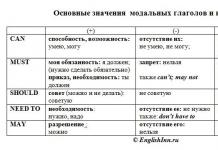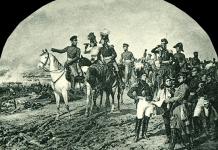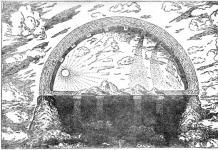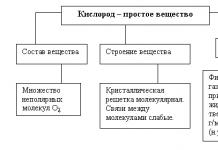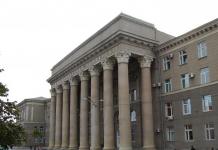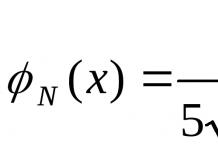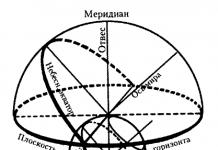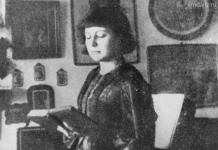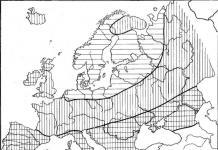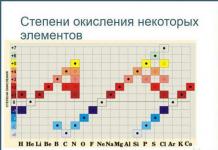Отдельной строкой и, соответственно, топиком стоит рассказать о прошлом страны. История Англии очень длинная, многообразная. Любовь и ненависть, злость и предательства, война и мир, смена династий, падение и восхождение - чего только там не было. Об о всем об этом лаконично, грамотно и кратко расскажет наша статья.
Если вы хотите понять душу Англии, то вам непременно стоит научиться описывать историю Великобритании на английском. Лично для вас — это расширение словарного запаса, кругозора. Помимо этого, вы будете понимать, как появилось название, монархия и не упадете в грязь при беседе на эту тему лицом даже с коренными жителями. Итак, как звучит история Англии на английском языке?
The history of Great Britain is long and very exciting. The Celts 1 crossed over from Europe to the British Isles centuries before the Roman invasion 2 .The Roman province in this area covered 3 most of the territory of present Wales and England. The Romans influenced 4 the way of living, language and culture greatly.
In the 5th centure the Angles and the Saxons (two Germanic tribes) 5 settled 6 in Britain and occupied a very vast 7 territory. They were pagans 8 . Christianity 9 came to Britain from Rome in 597. Angeles and Saxons conquered 10 against Celts during the 5th and 6th centuries A.D. These Germanic conquerors gave England its name — «Angle» land.
In the 11th century Normans invaded 11 Britain. This invasion had a great influence on the life of Britain. For example, a feudal system was imposed 12 — Lords, barons who were French-speaking Normans and the peasants 13 (the English-speaking Saxons). So the English class system was built. At this time Middle English as a language dominated in England.
During the 16th century the English monarch became very powerful. The Tudor dynasty (1485-1603) established 14 a system of government. Parliament was split 15 into two Houses and compeletely depended on the monarch. But during the 17th century it was established the supremacy 16 of the parliament over the monarchy in Britain. The conflict had happend and the Civil War 17 began. Parliament won the war, the king was executed 18 and Oliver Cromwell became the leader. But after his death this system of government was forgotten and the son of the king was returned to the throne.
In the 18th century the Industrial Revolution 19 started. Many of people who had lived in the rural areas 20 moved to towns. The population of London became about a million. In the next century Britain governed one of the biggest world’s Empire. It was made up 21 of Canada, Ireland, India, Australia and large parts of Africa. They had internal 22 self-government, but recognized the authority 23 of the British government. Britain had a great economic power. The English spread their culture around the world.
The 20th century was not stable. There were a lot of struggles for the rights: women, the working class. They became more powerful and stronger.
Of course, I have told you the main facts about the past of the country. There were a lot of interesting events in Briatan and you can read about them in special literature.
Vocabulary:
- Celts — кельты
- the Roman invasion — римское нашествие, завоевание
- covered — покрывать/ занимать
- influenced — влиять/ воздействовать
- the Angles and the Saxons (two Germanic tribes) — Англы и Саксы (два племени)
- settle — осесть
- vast — обширный
- pagans — язычники
- Christianity — христианство
- conquer- завоевывать
- invade — вторглись/ напали/ захватили
- impose — навязывать
- peasants — крестьяне
- establish — установить
- to be split — быть расколотым
- the supremacy — верховенство
- Civil War — гражданская война
- to be executed — быть казненным
- the Industrial Revolution — индустриальная (промышленная) революция
- rural areas — сельская местность
- to be made up — состояла из
- internal — внутренний
- recognized the authority — признавать авторитет/ верховенство/ подчинялись власти
Представленная нами история Великобритании на английском будет вам хорошим началом в углублении знаний. Мы перечислили наиболее важные события, наиболее значимые, но вы на этом можете не останавливаться. Поверьте, там столько тайн, которые непременно вовлекут вас в чудесный мир прошлого.
1. Прочитайте текст, предложите свой перевод. Составьте аннотацию, подготовьте устное сообщение.
The first Celtic tribes (племена) are believed to have come to the British Isles between 800 and 700 BC. Two centuries later they were followed by the Brythons or ancient Britons after whom the country was called Britain.
The first Roman invasion (завоевание) was led by Julius Caesar in 55 BC. But Britain was not conquered until some 90 years later, under Emperor Claudius, in 43 AD. Although the Roman occupation of Britain lasted nearly 400 years, its effects were few. The people did not adopt the Latin language and so Latin did not displace Celtic.
In the middle of the 5th century, three Germanic tribes - The Angles, Saxons and Jute"s invaded Britain from the continent. From the 8th century the Anglo-Saxons had to face Scandinavian invaders - the Danes and the Norsemen sometimes refereed to as Vikings - who occupied parts of Britain and made some permanent settlements. The Scandinavian invasions continued till the 11th century.
The period of feudalism started around 1066 and lasted to the 15th century. In this period the modern English nation and language came into being. It was a period of struggle for power between kings and between powerful nobles, a period of frequent wars. But it was also a period in which the development of the wool trade and the early decline of feudalism prepared the way for England"s rise as a world power.
The first 40 years of the 17th century can be characterised as a period of growing conflict between the King and parliament, representing the interests of the bourgeoisie. The conflict led to the civil war in 1640 which resulted in the abolition (отмена, упразднение, уничтожение, ликвидация,аннулирование) of the monarchy and in Cromwell"s military rule in the middle of the century. This period ended in the Glorious Revolution ("Славная революция" (1688-89 - государственный переворот, завершившийся свержением Якова II (James II) и утверждением на престоле Вильгельма III Оранского (William III of Orange) и его супруги Марии (Mary). Привёл к установлению господства землевладельческой знати и крупной буржуазии, а к установлению конституционной парламентской монархии)) which marked the end of the English bourgeois revolution.
In the period of 1688 to 1760 England definitely took the lead in European commerce. During the Industrial Revolution (1760 - 1850) Britain became the first industrial power in the world, "the workshop of the world." The Anglo - French rivalry for world domination which had started in the previous period continued and culminated in the Napoleonic Wars (1803 - 1815).
The Victorian era which comprised the second half of the 19th century, called after Queen Victoria, was a period in which Britain became the strongest world power: besides being the greatest financial and commercial power, the greatest sea power and the greatest colonial power. In was the era of the greatest colonial expansion.
The 20th century is a period of the decline of Britain as a world power a period of crises of the two world wars, from which Britain emerged as a victor, but greatly weakened. It is characterised by the disintegration of Britain"s colonial empire and the effort to adjust Britain to the new situation by joining the other developed capitalist countries of Western Europe in EEC (ЕЭС, Европейское экономическое сообщество).
15 Сен
Тема по английскому языку: Выдающиеся события в истории Великобритании
Топик по английскому языку: Выдающиеся события в истории Великобритании (Оutstanding events in the history of Great Britain). Данный текст может быть использован в качестве презентации, проекта, рассказа, эссе, сочинения или сообщения на тему.
Остров
В истории Великобритании было множество выдающихся событий. Тысячи лет назад Великобритания была соединена с Европой и покрыта льдом. Страна превратилась в остров 8000 лет назад. Первые люди пришли в Великобританию два с половиной миллиона лет назад. Они были охотниками и добытчиками пищи, которые использовали простые каменные инструменты и орудия.
Часть Римской Империи
В 43 году римляне вторглись в Британию, и она стала частью Римской Империи, что несомненно наложило свой отпечаток на Британию и, даже сегодня, кое-где можно увидеть руины римских построек, крепостей и дорог.
Вторжения
Позже были вторжения анго-саксов и викингов, но самым важным было нормандское завоевание, которое началось в 1066. Нормандцы сильно повлияли на британскую цивилизацию. Они построили много замков и внедрили феодальную систему.
Пандемия
Черная смерть, или бубонская чума, которая обрушилась на Англию в 1348 и продолжалась до 1349, унесла жизни почти половины населения страны.
Объединение
Акты объединения 1536, 1707 и 1800 объединили Англию с Уэльсом, Шотландией и Ирландией. В 1606 государственный флаг Соединенного Королевства был принят в качестве национального флага Британии.
Бедствия
Среди других выдающихся событий стоит отметить Великую чуму в Лондоне (1664-1665), когда люди заболевали один за другим и умирали за один день. Они пытались убежать из города, но специальный караул их не выпускал. В городе умерли почти 100 000 человек. За этой трагедией последовал Великий пожар, разразившийся в Лондоне в 1666. Он разрушил две трети города: 13 200 домов, 430 улиц и 89 церквей.
Важные события 20 века
Самыми важными событиями, произошедшими в 20 веке были Первая и Вторая мировые войны, начало правления королевы Елизаветы II в 1952 и вступление в Евросоюз в 1973.
Скачать Топик по английскому языку: Выдающиеся события в истории Великобритании
Outstanding events in the history of Great Britain
Island
There were lots of outstanding events in the history of Great Britain. Thousands of years ago, Great Britain was joined to Europe and was covered with ice. The country became an island about 8000 years ago. The first men and women came to Britain over two and a half million years ago. They were hunters and gatherers of food who used simple stone tools and weapons.
Part of the Roman Empire
In 43 A.D. the Romans invaded Britain and it became part of the Roman Empire, which made its mark on Britain, and even today, the ruins of Roman buildings, forts and roads can be found all over Britain.
Invasions
Later, there were invasions of the Anglo-Saxons and Vikings, but the most important was the Norman Conquest, which began in 1066. The Normans influenced the British civilization greatly. They built lots of castles and imposed a feudal system.
Pandemic
The Black Death or bubonic plague, which arrived in England in 1348 and continued till 1349, killed nearly half of the population.
Acts of Union
Acts of Union of 1536, 1707 and 1800 joined England with Wales, Scotland and Ireland respectively. In 1606 the Union flag was adopted as the National Flag of Britain.
Disasters
Among some other outstanding events we should mention the Great Plague in London (1664-1665), when people fell ill one after another and died in one day. They began to run out of the city but the special guard didn’t let them go. Nearly 100,000 people died in the city. The tragedy was followed by the Great Fire, which broke out in London in 1666. It destroyed two thirds of the City: 13,200 houses, 430 streets and 89 churches.
Most important events
The most important events that took place in the 20th century were the Fist and the Second World Wars, the beginning of Queen Elizabeth’s II reign in 1952 and joining the European Community in 1973.
The United Kingdom of Great Britain and Northern Ireland (the UK) occupies the British Isles and consists of 4 parts: England, Wales, Scotland and Northern Ireland. The country has the population of 60 million people within the land area of 244 thousand square kilometers. The isles are washed by the Atlantic Ocean in the north and in the west and by the English Channel in the south. The UK is separated from continental Europe by the North Sea. Great Britain is separated from Northern Ireland by the Irish Sea and the North Channel.
There are many beautiful lakes and mountains in Scotland and England. The highest point in the Highlands is Ben Nevis (1 340 metres). The longest river flows in England, it is the Severn. The main attraction in the north of England is the Lake District. Thanks to the warm waters of Gulf Stream the island is very green and the British climate is mild. Local summers are rather hot and winters are not cold. As the weather is very changeable in Britain, it is the favourite topic for discussion with the British.
The capital of Great Britain is London. It stands on the Thames river. The country is a constitutional monarchy and officially the Queen is the Head of state. But it is ruled by the Prime Minister and the government. The legislative body is the Parliament which consists of the House of Lords and the House of Commons.
The UK is a highly developed industrial state. The chief industries are shipbuilding, fishing and mining, production of aircraft equipment, electronics, textile and chemicals. The country is the world’s largest exporter of iron and steel goods. The most important industrial cities of Great Britain are London, Birmingham, Manchester, Glasgow, Liverpool, Leeds, Edinburgh.

Перевод
Соединенное Королевство Великобритании и Северной Ирландии (СК) занимает Британские острова и состоит из 4 частей: Англии, Уэльса, Шотландии и Северной Ирландии. Страна имеет население в 60 млн. человек на территории 244 тыс. кв. км. Острова омываются Атлантическим океаном с севера и запада и проливом Ла-Манш с юга. СК и континентальную Европу разделяет Северное море. Великобританию и Северную Ирландию разделяют Ирландское море и Северный пролив.
В Шотландии и Англии находится много красивых озер и гор. Самой высокой точкой в горной местности является Бен Невис (1340 м). Самая длинная река протекает в Англии, это Северн. Главной достопримечательностью севера Англии является Озерный край. Благодаря теплым водам Гольфстрима, остров очень зеленый, а британский климат мягкий. Лето здесь довольно жаркое, а зима нехолодная. Поскольку погода в Британии очень изменчива, это любимая тема для обсуждения среди британцев.
Столица Великобритании – Лондон. Он находится на реке Темза. Страна является конституционной монархией, и официально королева считается главой государства. Однако им управляют премьер-министр и правительство. Законодательным органом является парламент, состоящий из палаты Лордов и палаты Общин.
СК – высокоразвитая промышленная страна. Основными отраслями промышленности являются судостроение, рыбная и горнодобывающая промышленности, производство авиационной техники, электроники, текстиля и химикатов. Страна стала крупнейшим мировым экспортером товаров из железа и стали. Наиболее важные промышленные города Великобритании – это Лондон, Бирмингэм, Манчестер, Глазго, Ливерпуль, Лидз, Эдинбург.
15 Сен
Тема по английскому языку: Выдающиеся события в истории Великобритании
Топик по английскому языку: Выдающиеся события в истории Великобритании (Оutstanding events in the history of Great Britain). Данный текст может быть использован в качестве презентации, проекта, рассказа, эссе, сочинения или сообщения на тему.
Остров
В истории Великобритании было множество выдающихся событий. Тысячи лет назад Великобритания была соединена с Европой и покрыта льдом. Страна превратилась в остров 8000 лет назад. Первые люди пришли в Великобританию два с половиной миллиона лет назад. Они были охотниками и добытчиками пищи, которые использовали простые каменные инструменты и орудия.
Часть Римской Империи
В 43 году римляне вторглись в Британию, и она стала частью Римской Империи, что несомненно наложило свой отпечаток на Британию и, даже сегодня, кое-где можно увидеть руины римских построек, крепостей и дорог.
Вторжения
Позже были вторжения анго-саксов и викингов, но самым важным было нормандское завоевание, которое началось в 1066. Нормандцы сильно повлияли на британскую цивилизацию. Они построили много замков и внедрили феодальную систему.
Пандемия
Черная смерть, или бубонская чума, которая обрушилась на Англию в 1348 и продолжалась до 1349, унесла жизни почти половины населения страны.
Объединение
Акты объединения 1536, 1707 и 1800 объединили Англию с Уэльсом, Шотландией и Ирландией. В 1606 государственный флаг Соединенного Королевства был принят в качестве национального флага Британии.
Бедствия
Среди других выдающихся событий стоит отметить Великую чуму в Лондоне (1664-1665), когда люди заболевали один за другим и умирали за один день. Они пытались убежать из города, но специальный караул их не выпускал. В городе умерли почти 100 000 человек. За этой трагедией последовал Великий пожар, разразившийся в Лондоне в 1666. Он разрушил две трети города: 13 200 домов, 430 улиц и 89 церквей.
Важные события 20 века
Самыми важными событиями, произошедшими в 20 веке были Первая и Вторая мировые войны, начало правления королевы Елизаветы II в 1952 и вступление в Евросоюз в 1973.
Скачать Топик по английскому языку: Выдающиеся события в истории Великобритании
Outstanding events in the history of Great Britain
Island
There were lots of outstanding events in the history of Great Britain. Thousands of years ago, Great Britain was joined to Europe and was covered with ice. The country became an island about 8000 years ago. The first men and women came to Britain over two and a half million years ago. They were hunters and gatherers of food who used simple stone tools and weapons.
Part of the Roman Empire
In 43 A.D. the Romans invaded Britain and it became part of the Roman Empire, which made its mark on Britain, and even today, the ruins of Roman buildings, forts and roads can be found all over Britain.
Invasions
Later, there were invasions of the Anglo-Saxons and Vikings, but the most important was the Norman Conquest, which began in 1066. The Normans influenced the British civilization greatly. They built lots of castles and imposed a feudal system.
Pandemic
The Black Death or bubonic plague, which arrived in England in 1348 and continued till 1349, killed nearly half of the population.
Acts of Union
Acts of Union of 1536, 1707 and 1800 joined England with Wales, Scotland and Ireland respectively. In 1606 the Union flag was adopted as the National Flag of Britain.
Disasters
Among some other outstanding events we should mention the Great Plague in London (1664-1665), when people fell ill one after another and died in one day. They began to run out of the city but the special guard didn’t let them go. Nearly 100,000 people died in the city. The tragedy was followed by the Great Fire, which broke out in London in 1666. It destroyed two thirds of the City: 13,200 houses, 430 streets and 89 churches.
Most important events
The most important events that took place in the 20th century were the Fist and the Second World Wars, the beginning of Queen Elizabeth’s II reign in 1952 and joining the European Community in 1973.



